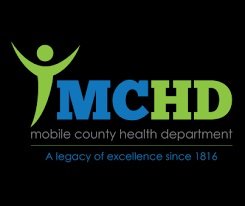
mobile county health department
The Mobile County Health Department (MCHD), located in Mobile County, Alabama, serves as a crucial public health agency dedicated to ensuring the health, safety, and well-being of the community. Over the years, MCHD has gained popularity for its proactive approach to addressing both emerging and longstanding health issues, implementing preventive measures, and adapting to new healthcare technologies. From managing disease outbreaks to incorporating Artificial Intelligence (AI) for data-driven insights, the Mobile County Health Department has become a vital entity in the public health landscape. This article will cover what MCHD does, why it is popular and in demand, its strategic use of AI, and other elements that make it a key player in the nation’s healthcare system.
1. What is the Mobile County Health Department?
The Mobile County Health Department was founded with the primary objective of promoting and protecting the health of residents in Mobile County, Alabama. Established in the early 19th century, MCHD has evolved from addressing common infectious diseases to now tackling a wide array of public health concerns, including chronic diseases, environmental health issues, mental health, and social determinants of health.
What is County
A “county” is an administrative division that typically functions as a smaller area within a state or province in a country, particularly in the United States, the United Kingdom, and some other countries. It can be understood as equivalent to a “district” in India, where various towns, villages, and cities are organized.
Key Features:
- Administrative Functions: Counties carry out various administrative tasks, such as healthcare, law enforcement, road maintenance, education, etc.
- Local Government Level: At the county level, there are smaller departments of government, whose officials assist in local administration and address the community’s needs.
- In the United States: Nearly every state in America has counties, such as Mobile County in the state of Alabama.
In this way, a county can be understood as a specific administrative area that is part of the local government.
MCHD operates under the umbrella of the Alabama Department of Public Health (ADPH), following state and federal guidelines, while tailoring programs to meet local community needs. Its functions are diverse and encompass areas such as:
- Epidemiology and Disease Control: Monitoring disease patterns, managing outbreaks, and implementing control measures.
- Environmental Health: Ensuring food safety, water quality, sanitation, and air quality to prevent health hazards.
- Preventive Health Services: Immunizations, screenings, and health education programs aimed at disease prevention.
- Women, Infants, and Children (WIC) Program: Providing nutritional assistance to low-income pregnant women, new mothers, and young children.
- Emergency Preparedness and Response: Readiness plans for public health emergencies, including natural disasters and pandemics.
- Mental Health Services: Increasing access to mental health resources, especially in underserved populations.
With a strong focus on the well-being of the community, MCHD also coordinates with local hospitals, schools, and organizations to expand its impact and effectiveness.
2. Why the Mobile County Health Department is Popular
MCHD is popular and widely respected for several reasons, all contributing to its prominence in Mobile County and beyond. These include its strong community ties, innovative health services, and data-driven approach to public health issues.
A. Community Engagement and Trust
The MCHD has been operating for decades, making it a familiar and trusted institution within the Mobile County community. This trust has been built on consistent, reliable, and effective health interventions that resonate with local needs. By engaging with the public through regular town halls, community health fairs, and educational workshops, MCHD fosters a proactive health environment that encourages residents to prioritize their health.
B. Response to Disease Outbreaks and Public Health Crises
Throughout history, MCHD has demonstrated its effectiveness in managing public health crises. During the COVID-19 pandemic, for example, MCHD worked tirelessly to provide testing, contact tracing, vaccinations, and education to help curb the spread of the virus. This responsiveness to crises strengthens its reputation and solidifies its role as a public health leader.
C. Comprehensive Services in Demand
In an era where healthcare accessibility can be challenging, MCHD offers a wide range of services often unavailable or unaffordable through private providers. By offering immunizations, nutrition programs, screenings, and health education at low or no cost, MCHD makes healthcare accessible to underserved populations, boosting its popularity.
D. Transparency and Data Sharing
MCHD’s practice of transparent communication is another reason it remains popular. The agency regularly updates the public on disease trends, environmental health risks, and available resources, empowering residents to make informed decisions about their health.
3. Growing Demand for MCHD’s Services
Demand for MCHD’s services is on the rise due to several factors. Increased awareness of public health issues, the rising cost of healthcare, and the need for preventive measures have driven people to seek services offered by MCHD.
A. Health Disparities and Economic Barriers
Mobile County, like many communities across the U.S., faces significant health disparities. These disparities often stem from economic challenges, limited access to healthcare, and the prevalence of chronic diseases. MCHD is increasingly in demand as it provides cost-effective health solutions, including immunizations, free screenings, and affordable dental care. For lower-income families, the WIC program offered through MCHD is invaluable, providing nutritional support that improves health outcomes for young children and pregnant women.
B. Preventive Health Services and Chronic Disease Management
With rising cases of chronic diseases such as diabetes, hypertension, and obesity, the demand for preventive health services is at an all-time high. MCHD addresses these needs through screenings, health education workshops, and lifestyle counseling, aimed at reducing the long-term health burdens associated with chronic conditions.
C. Increased Need for Mental Health Support
Mental health has become a growing concern, especially in the wake of the COVID-19 pandemic. Recognizing this need, MCHD has expanded its mental health services, offering support groups, counseling, and referrals to local mental health resources. The rise in demand for mental health services has prompted MCHD to prioritize this area in its budget and community outreach efforts.
D. Emergency Preparedness and Climate-Related Health Risks
With a coastline vulnerable to hurricanes and tropical storms, Mobile County faces unique environmental risks. MCHD plays an essential role in emergency preparedness and response, ensuring that residents have access to safe drinking water, shelter, and medical services during natural disasters. As extreme weather events become more frequent, the demand for MCHD’s emergency services and disaster readiness programs is expected to grow.
4. The Role of Artificial Intelligence (AI) in Mobile County Health Department’s Operations
Artificial Intelligence (AI) has emerged as a game-changing tool in public health, enhancing the accuracy, efficiency, and impact of health services. MCHD has embraced AI-driven technologies to better serve the community, streamline its processes, and improve health outcomes.
A. Disease Surveillance and Predictive Analytics
AI-powered disease surveillance tools allow MCHD to track disease outbreaks in real time, analyze trends, and predict potential outbreaks before they occur. This proactive approach is especially beneficial in preventing the spread of infectious diseases. Predictive analytics also enables MCHD to identify high-risk populations for targeted health interventions, improving the efficiency of its programs.
B. Personalized Health Recommendations
Through AI-driven health monitoring platforms, MCHD can provide personalized health recommendations to residents based on their medical history and risk factors. For instance, AI can analyze a patient’s history and lifestyle to offer customized advice on managing chronic conditions, such as diabetes or hypertension. This personalized approach makes healthcare more relevant and accessible to individuals in Mobile County.
C. Enhanced Customer Service and Communication
AI chatbots and virtual assistants have been integrated into MCHD’s customer service strategy, helping answer common questions, schedule appointments, and provide information on health services. This reduces wait times and improves the overall patient experience.
D. Resource Allocation
AI helps MCHD optimize resource allocation, particularly during times of crisis. During the COVID-19 pandemic, AI algorithms were used to allocate medical supplies, vaccines, and personnel to areas with the highest demand. By accurately predicting demand, MCHD can ensure that resources are available where they are most needed.
5. Additional Key Services and Programs by MCHD
Beyond the core services and AI integration, MCHD provides a wide range of additional programs that make it a holistic public health agency.
A. School Health Programs
- The Mobile County Health Department partners with local schools to implement health programs focused on students. These include vaccination clinics, health screenings, and health education workshops on topics like nutrition, hygiene, and mental health. By reaching young people early, MCHD helps establish healthy habits that benefit the community long-term.
B. Environmental Health and Vector Control
Environmental health services include inspections of food establishments, monitoring air and water quality, and managing pest and mosquito control to reduce the risk of vector-borne diseases like West Nile virus. These services protect the community from environmental hazards, which are particularly prevalent in regions with hot climates and dense vegetation like Mobile County.
C. Public Health Education and Outreach
Health education is central to MCHD’s mission. The department organizes workshops, health fairs, and information sessions to educate the public on topics ranging from smoking cessation and sexual health to healthy eating and exercise. These programs empower residents to make informed health choices, reducing the overall incidence of preventable diseases.
6. Future Directions and Challenges for the Mobile County Health Department
While the Mobile County Health Department is highly regarded for its comprehensive approach, it faces challenges common to public health agencies. Budget constraints, staff shortages, and a constantly changing public health landscape require innovation and adaptability.
A. Securing Funding and Resources
As demand for services grows, securing sufficient funding is an ongoing challenge. MCHD relies on a mix of state, federal, and local funding, as well as grants, to maintain its operations. The agency must advocate for continued financial support to sustain its programs, particularly those aimed at underserved populations.
B. Adapting to Emerging Health Threats
The rise of antibiotic-resistant bacteria, new infectious diseases, and climate-related health risks means that MCHD must continuously adapt. By investing in research and technology, such as advanced diagnostic tools and AI-driven analytics, MCHD can remain at the forefront of these challenges.
C. Community Health Disparities
Addressing health disparities is both a challenge and a priority. To overcome socioeconomic barriers to healthcare, MCHD will need to collaborate with community organizations and leverage resources to ensure equitable access to health services.
Conclusion
The Mobile County Health Department stands as a testament to the importance of comprehensive public health services. From addressing acute health crises to fostering long-term wellness through preventive measures, MCHD plays an indispensable role in Mobile County. Its popularity stems from its deep-rooted commitment to community health, while its evolving approach, including the use of AI, demonstrates its readiness to meet the challenges of modern healthcare.
As the demand for public health services continues to grow, the Mobile County Health Department remains dedicated to adapting and expanding its resources, ensuring that every resident has access to the care and information they need to lead healthier lives.






